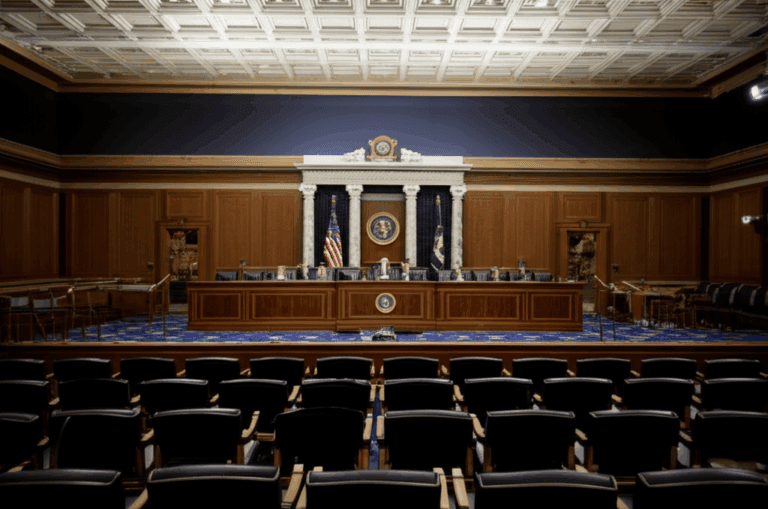Nearly six months after Joe Biden’s departure from the White House, Senate Republicans are actively scrutinizing his presidency. On Wednesday, June 18, 2025, they initiated what is anticipated to be a series of congressional hearings this year focusing on his mental fitness during his time in office. This move has ignited a fierce partisan divide, with Democrats denouncing the proceedings and boycotting the hearing.
The Hearing’s Focus and Participants
The Senate Judiciary Committee, led by Republicans, convened the hearing to examine Joe Biden’s capacity to serve during his presidency. The core argument presented was that Biden, his staff, and the media should be held accountable for actions and representations made during his term.
Notably, the Republicans invited three witnesses to testify, none of whom had served in Biden’s administration.
In contrast, the Democratic members of the committee chose to boycott the hearing, criticizing the Republican’s efforts as “armchair diagnosing.”
Democrats Denounce “Armchair Diagnosing”
Democrats have strongly condemned the hearing, characterizing it as a politically motivated attack and a distraction from pressing national issues. Senator Dick Durbin (D-Ill.), the ranking member of the committee, criticized Republicans for focusing on Biden’s mental state instead of addressing critical challenges facing the nation. Durbin highlighted issues such as the recent assassination of a state lawmaker in Minnesota and the handcuffing of Senator Alex Padilla at a DHS press conference as examples of matters deserving immediate attention.
Senator Peter Welch (D-Vt.) echoed these sentiments, asserting that the hearing offered no benefit to his constituents.
Republican Justification and Aims
Despite the criticism, Republicans have defended the hearing as a necessary exercise in oversight and accountability. Senator John Cornyn (R-Texas), who co-chaired the hearing, stated that its aim was to “shine a light on exactly what went on in the White House during Biden’s presidency.” He argued that the committee could not ignore what transpired during Biden’s term, even though he is no longer in office.
Republicans also played clips of Democrats defending Biden, meant to highlight what Republicans see as a contradiction between those past statements and Biden’s alleged cognitive decline. Senator Eric Schmitt (R-Mo.) accused Democrats of ignoring the issue, much like they allegedly ignored President Biden’s decline while he was in office.
House Oversight Committee Involvement
Parallel to the Senate hearing, the House Oversight Committee is also conducting its own investigation into Biden’s mental fitness. The committee has issued subpoenas to several of Biden’s former staff members, including his White House doctor, compelling them to testify at a hearing scheduled for June 27. This hearing is reportedly part of an investigation into what Republicans are calling a “cover-up of President Joe Biden’s cognitive decline.”
The Broader Context: Age, Fitness, and Political Attacks
The focus on Biden’s mental fitness is not new. Questions about his age and cognitive abilities arose last summer following what was widely perceived as a poor performance in a debate against Donald Trump, which ultimately led to his withdrawal from the race. Even after Trump regained the presidency in November, Republicans have continued to raise concerns about Biden’s age, citing reports published this year.
Adding another layer to the controversy, Trump has recently alleged that officials in the Biden administration may have forged the former president’s signature and taken actions without his knowledge. However, Trump has not provided any evidence to support these claims.
Potential Implications and Future Hearings
The Senate hearing and the House investigation signal a sustained effort by Republicans to scrutinize Biden’s presidency and raise questions about his mental capacity. These actions could have several implications:
- Political Messaging: The hearings provide Republicans with a platform to criticize Biden and his administration, potentially influencing public opinion and shaping the narrative for future elections.
- Oversight and Accountability: Republicans argue that the hearings are essential for holding Biden and his staff accountable for their actions while in office.
- Historical Record: The hearings and investigations will contribute to the historical record of Biden’s presidency, potentially shaping how future generations view his time in office.
It is expected that there will be additional hearings and investigations into Biden’s presidency in the coming months.
Witnesses
The witnesses called upon by the Senate Judiciary Committee were:
- Sean Spicer, former White House press secretary.
Conclusion
The Senate hearing on Joe Biden’s mental fitness, coupled with the House investigation, underscores the deep political divisions surrounding his presidency. While Republicans frame their actions as necessary oversight, Democrats denounce them as partisan attacks. As these investigations continue, they are likely to further intensify the debate over Biden’s legacy and the state of American politics.







